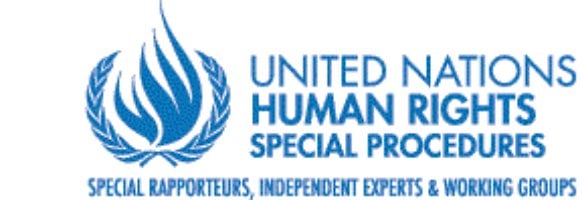GENEVA (22 January 2021) – States and non-state actors must cooperate in an equitable, globally coordinated vaccine distribution programme, such as the COVID-19 Vaccine Global Access Facility (COVAX) led by the World Health Organization, or risk stalling recovery from the health pandemic, a UN expert said today. Urging an end to individualised approaches and vaccine competition, the UN Independent Expert on human rights and international solidarity, Mr Obiora C. Okafor, made the following statement:
“The last few weeks of 2020 witnessed the historic approval of several COVID-19 vaccines by regulators in various countries, offering much hope to billions of people worldwide. Several states, mostly in the Global North, have already secured large quantities of the approved vaccines and commenced vaccinating their populations. Unfortunately, this has not been the case in almost all of the Global South states, in which close to 90 percent of the world’s population lives. The world therefore faces a sharp and highly problematic vaccine-divide in which the much richer Global North states, which host a very small percentage of the global population, have so far cornered the vast majority of available COVID-19 vaccines, leaving the bulk of the world’s population with almost no access to these medicines.
Rich states have, quite understandably, acted according to their perceived national self-interest, and under great political pressure from their own populations to rapidly end the pandemic for them. They imagine that the pandemic will end for them once their populations receive these vaccines, regardless of whether the same experience is simultaneously replicated in the poorer states that host the vast majority of the world’s population.
And yet, this pandemic will not end for anyone, until it ends for everyone. The virus can still travel from the vastly unvaccinated massive population of the Global South to the Global North, including in its increasingly mutating forms. This would likely bolster or reignite the pandemic, even in states that have vaccinated large swathes of their populations, or otherwise complicate or delay the effort to end it.
A globally coordinated vaccine distribution programme is highly preferable to the individualised approaches adopted by all-too-many of the richer states. International vaccine solidarity should be much preferred over international vaccine competition, such as the COVID-19 Vaccine Global Access Facility (COVAX) led by the World Health Organization that aims at global equitable access to COVID-19 vaccines by fairly distributing two billion doses by the end of 2021.
States, rather than act separately to hoard vaccines, should rededicate themselves to the COVAX programme. While many have commendably contributed large sums of money to COVAX, they undermine its effectiveness, and the overall effort to end the pandemic as rapidly as possible for everyone, when they simultaneously engage in vaccine hoarding.
Similarly, any measure that can ensure this outcome deserves serious consideration. A vast increase in the availability of doses can only be brought about in the shortest possible time by the production of generic versions of vaccines by as many companies as possible, without them being unduly constrained by patents.
Given the great urgency of ensuring for everyone, everywhere, as rapid and effective access to COVID-19 vaccines as possible, I therefore urge urgent and strong action by States and other actors toward a course correction.”
This statement was endorsed by the following independent experts: Ms. Tlaleng Mofokeng, Special Rapporteur on the right of everyone to the enjoyment of the highest attainable standard of physical and mental health; Mr. Saad Alfarargi, Special Rapporteur on the right to development, and Mr. Livingstone Sewanyana, Independent Expert on the promotion of a democratic and equitable international order.
ENDS
Mr Obiora C. Okafor was appointed by the Human Rights Council as the Independent Expert on human rights and international solidarity in June 2017. He is the York Research Chair in International and Transnational Legal Studies (Senior Tier) and a tenured Full Professor of Law at the Osgoode Hall Law School of York University, Toronto, Canada. He is also a former Chairperson of the UN Human Rights Council Advisory Committee.
The Independent Experts are part of what is known as the Special Procedures of the Human Rights Council. Special Procedures, the largest body of independent experts in the UN Human Rights system, is the general name of the Council’s independent fact-finding and monitoring mechanisms that address either specific country situations or thematic issues in all parts of the world. Special Procedures experts work on a voluntary basis; they are not UN staff and do not receive a salary for their work. They are independent from any government or organisation and serve in their individual capacity.

